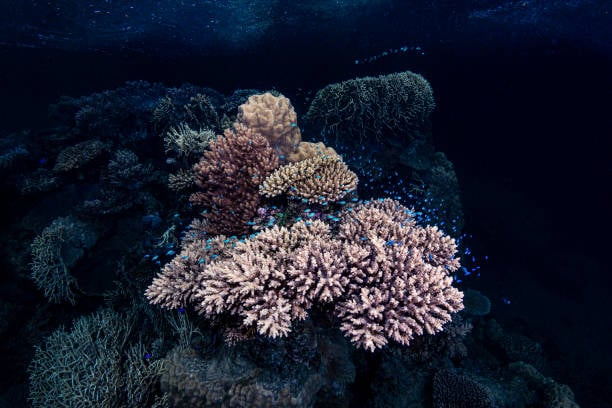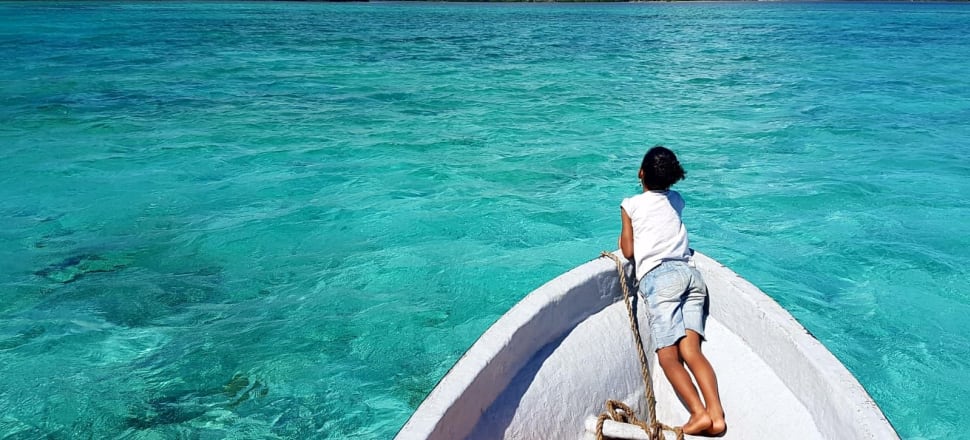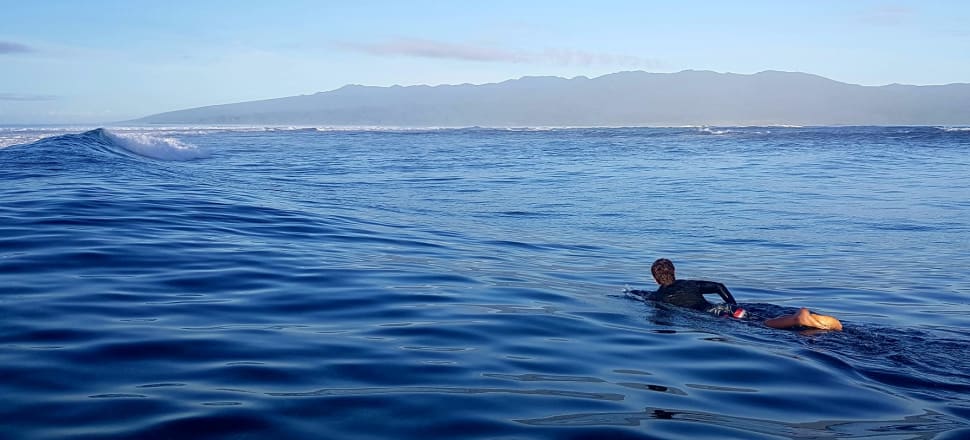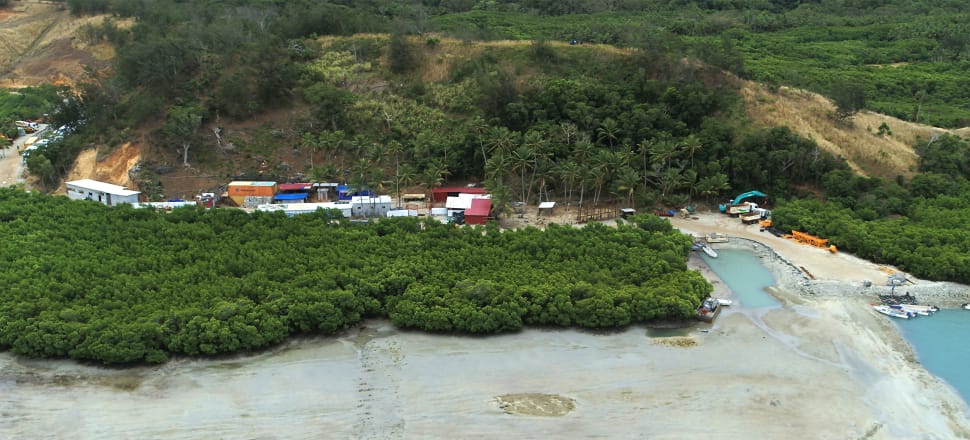The Fijian government has made clear it won’t approve any proposal that damages the environment following a Newsroom investigation that exposed a New Zealand-registered company’s plan to excavate 2.5 hectares of coral reef at a Fijian island group to improve surf waves.
The World Wave Project proposes to dig up sections of coral reefs off the remote Qamea and Taveuni Islands in Fiji in what it describes as a “world leading project” to create “a world class wave”. The area is one of the most celebrated diving spots in the world.
The company claims it will attract surf tourism expenditure for Fiji in the tens of millions of dollars, boasting the planned waves could bring in 200 tourists per day spending $1000(US$500) per day across 300 days, “creating long term employment and opportunities”.
The proposed development at two sites near Qamea – which would use a jack-up barge mounted with an excavator to dig two channels through coral reef – has been slammed by various environmentalists, scientists, locals and even surfers.
Following the publication of Newsroom’s story, the Fijian government has now spoken out to make clear it was listening to the concerns raised and promising not to let any development go ahead that would have detrimental effects on the environment, releasing the following statement:
“The Minister for Agriculture, Waterways and Environment, Dr Mahendra Reddy, did not mince his words when responding to concerns raised by farmers of Taveuni, whereby the issue of the Qamea Reef Project was raised as farmers of Taveuni and Qamea indicated their opposition to this proposed reef project.
“Minister Reddy assured these farmers that any proposed development works or businesses that damaged and disturbed the ecological balance of the environment would be rejected for the benefit of our future generations.”
Reddy was quoted as saying if an investor wanted to invest in Fiji, they needed to follow all the protocols.
Given WWP was still in the environmental impact assessment stage, it was still “exploring” and no approvals had been given.
“Take my word, the Ministry of Environment will not give any approval to any investor who will do any damage to our environment, whether it is the reef, or mangroves, to our ecosystems or our biodiversity, we will not allow for any projects to adversely affect our environment.”
“There is no development there, nothing, they may be diving and exploring but no development will happen there that has a negative impact on the environment,” he added.
WWP has branded its proposed excavations as “resculpting” the reef, carrying out what it says will be minor modifications that will “improve the ecology” of the area.
The proposed areas being considered are ~1.125 hectares (150m × 75m) and ~1.5 hectares (150m x 100m). Combined, it is equivalent to just under four standard rugby fields. The development is expected to take around six months.
Emotions have been running high, with experts describing the plan as a dredging project of “environmental vandalism”, surfers saying the waves won’t work because the winds are all wrong, and some local villagers so concerned about offers from WWP that they’ve written to the Fijian Prime Minister to put a stop to the plan.
The proposal is being at least partially funded by the Founders Fund, the investment firm founded by PayPal’s Peter Thiel, known for its investment in start-ups like Facebook, Spotify, Airbnb and SpaceX.
One of those at the helm of the proposal is New Zealander Dr Shaw Mead, a scientist in oceanography who did his PhD on incorporating surf breaks into multi purpose reefs.
He is the surf scientist on the proposed wave development for WWP, as well as being a significant shareholder in the company.
He was previously involved with the now-defunct Raglan company Artificial Surf Reefs (ASR), which was behind a string of expensive, but largely failed, artificial surf breaks in New Zealand and around the world.
This story was produced by Cass Mason, published at Newsroom on 14 December 2021, reposted via PACNEWS.




